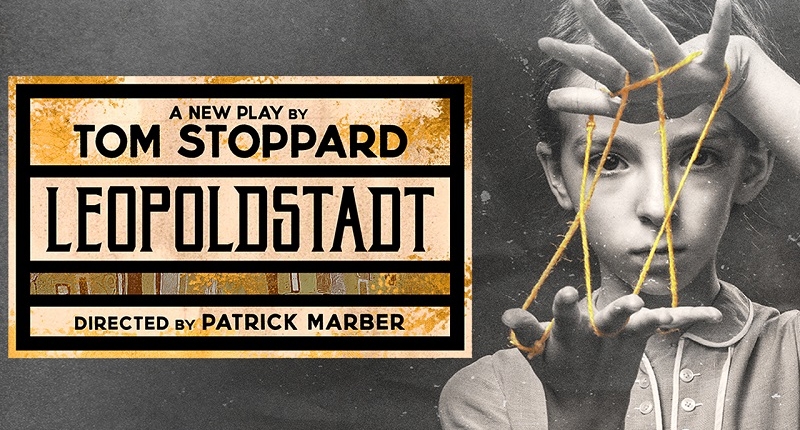With Rabbi Yael Splansky
Rabbi Splansky: I understand you are bringing Tom Stoppard’s “Leopoldstadt” to Toronto next month. How has this play captured your attention?
David Mirvish: Audrey and I were in London and on our way home from a trip abroad in January 2020. I always look for new plays by Tom Stoppard and I knew a little about his Jewish background.”Leopoldstadt” was sold out for its entire run and we would only be able to see the first preview before we had to depart for Toronto. We were very lucky to find two tickets for that performance.
We knew “Leopoldstadt” was a district in Vienna but little else. The play began and we were invited into the home and lives of an extended Jewish family. Stoppard, who is a great wordsmith, takes us on a rollercoaster adventure and we are emotionally blind-sided by the experience. There are many subtle but purposeful things happening on stage and we were fascinated by the visual activity.
The family on stage was one I could identify with. Their story is sensitive, poignant and applies to then, now and the future. It was all over too quickly and we left the theatre numbed by the experience. I have seldom felt my life so closely tied to the characters on stage.
Rabbi Splansky: Against the backdrop of rising anti-semitism today, what does this play come to teach us now?
David Mirvish: All of Stoppard’s plays show the complexity of life. Nothing is simple and often things don’t appear to be as they actually are. This is especially true of Leopoldstadt, in which anti-semitism is something that the Merz family has to deal with at every turn. Sometimes that prejudice is blatant, more often it is very subtle — but it is always there. I think that in many communities that is still true today. One of the ways forward is to share our community’s stories and to all work together towards a world in which everyone is valued and treated with respect. One of the greatest defences against hate is humour, and it is very evident in Leopoldstadt.
Rabbi Splansky: I was interested to learn that Stoppard’s parents were non-observant Czech Jews. His father was a physician, employed by the Bata Shoe Company, which in 1939 created the planned community of Batawa, Ontario and now has its shoe museum in Toronto. For congregants with roots in Europe, I’m sure the story will really resonate. What universal messages does the play bring to diverse audiences?
David Mirvish: A brilliant new biography of Stoppard was published this past spring. It details Stoppard’s life and illustrates how everything that happened to him made him the artist that he is. His own life, like that of the Merz family, reflects the history of the 20th century. His parents, with their two sons, had to flee their home to Southeast Asia. And history kept interrupting, displacing and disrupting their lives. The play shows our need to be conscious of the plight of displaced people and refugees in the time we live in now. We are all the product of our own family history and that of the world that we collectively create. That to me is the message of the play. And it is told through the point of view of a Jewish family. That also is central to the play’s message.
Rabbi Splansky: Both you and your father, of blessed memory, have devoted yourselves to creating the character of our world-class city. What does the opening of Toronto’s theatre district signal about how we are emerging from life in lockdown?
David Mirvish: I believe the lockdown proved to us our need for the company of other people. It also demonstrated that we have to find our way forward in a safe manner. For that reason, it is important that we all participate in vaccination, not only to protect ourselves but also others. Everyone in our theatres — working on stage, backstage and in the audience — is fully vaccinated. All our staff are frequently tested so that we can assure each other’s safety.
The reopening of theatres allows us to continue telling the stories of many communities so that we can come to know each other better. Theatre teaches us empathy and it brings us together to experience emotions. This communal experience helps buoy our spirits so that we are better prepared for the constant challenges happening all around us.
Rabbi Splansky: It has been said that science will get us over the pandemic, but the arts will get us through it. Thank you for brining life back to our city and for artfully telling the stories that must be told.
David Mirvish: Thank you, Rabbi, and Shabbat Shalom.





